International Conference on Law and Social Sciences (ICLSS - 2025)
Central Asia in a Changing World: Agency, Legal Challenges, and Media Landscape
April 17-18, 2025
Overview
ABOUT THE CONFERENCE
The Central Asian Research Center (CARC) at the Faculty of Law and Social Sciences, SDU University (Kazakhstan), in collaboration with the Central Asia Program (CAP) at George Washington University (USA), is organizing a bi-annual International Conference on Law and Social Sciences (ICLSS-2025) titled Central Asia in a Changing World: Agency, Legal Challenges, and Media Landscape. The conference aims to provide a shared platform for scholars, researchers, practitioners, Ph.D. candidates, and graduate students in the fields of law and social sciences from across the world.
The conference highlights the role and agency of Central Asian countries as they navigate diverse challenges within the complex geopolitical landscape that has emerged in the Eurasian region. Taking an interdisciplinary approach, it focuses on political developments, foreign policy, regional cooperation, legal dimensions, gender perspectives, and the media landscape in Central Asia in order to facilitate an in-depth scholarly dialogue.
The Central Asian Research Center (CARC) at the Faculty of Law and Social Sciences, SDU University (Kazakhstan) is glad to welcome scholars from international and Kazakhstani universities, research institutes, and any other relevant institutions to participate in this conference. This event will bring together distinguished speakers and scholars to deliver keynote speeches and conduct panel discussions.
SUBTHEMES
– Law: public law, private law, international law
– Society & Identity: decolonization, regional cohesion and identity, human rights, inclusivity
– Economy & Security: energy security, connectivity, economic corridors, trade
– Geopolitics: regional security, international conflicts
– Politics: regionalism, foreign policy and domestic politics nexus, public perception of other nations
– Social Issues: gender perspectives, youth empowerment, social and demographic issues
– Environment: environmental challenges, sustainable development, renewable energy
– Migration: border dynamics and migration trends
– Media & Disinformation: disinformation, propaganda, media literacy, data protection, data journalism, information warfare, Central Asian media climate
ADVISORY & PEER-REVIEW BOARD OF THE CONFERENCE
- Dr. Madiyar Saudbayev, Assistant Professor, Dean of the Faculty of Law and Sciences
- Dr. Aizhan Kopbayeva, Assistant Professor, Head of the Law Department
- Dr. Galym Zhussipbek, Associate Professor
- Dr. Shatlyk Amanov, Assistant Professor
- Dr. Maigul Abilova, Associate Professor
- Dr. Yessengul Kapkyzy, Assistant Professor
- Dr. Aigul Kassenova, Assistant Professor
- Dr. Marat Yestemirov, Assistant Professor
- Dr. Mukhtar Senggirbay, Assistant Professor
- Dr. Zulfiya Imyarova, Associate Professor
- Dr. Sergei Golunov, Professor
- Dr. Yerkebulan Sairambay, Assistant Professor, Research Fellow
- Dr. Gaini Serim, Assistant Professor
- Dr. Zhassulan Akhmetov, Assistant Professor
- Mr. Berdak Baiymbetov, Senior Lecturer
- Mr. Ergali Isakulov, Senior Lecturer
- Mr. Abay Magauiya, Senior Lecturer
- Mr. Darkhan Orynbassarov, Senior Lecturer, Research Fellow
- Dr. Assylzat Karabayeva, Adjunct research fellow, Assistant Professor, KIMEP University
Coordinators
General Coordinator:
Dr. Aizada Nuriddenova, Research Coordinator
Assistant Coordinator:
Diana Abdussattar, research assistant
Email: iclss@sdu.edu.kz
INVITED SPEAKERS

SEBASTIEN PEYROUSE
Sebastien Peyrouse, PhD, is the director of the Central Asia Program and a research professor at the Institute for European, Russian and Eurasian Studies (George Washington University), and a researcher at EUCAM (Europe-Central Asia Monitoring), Brussels. |
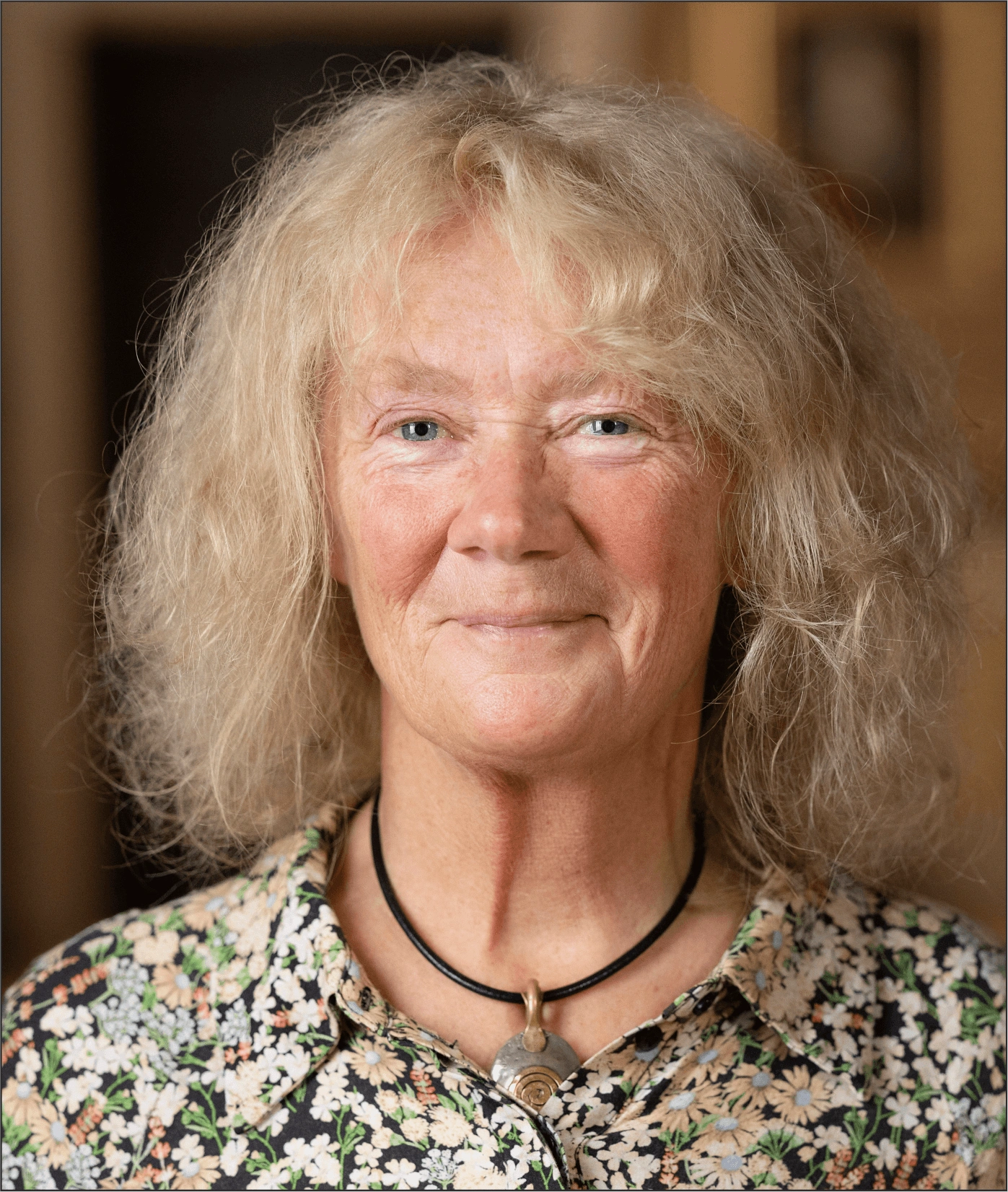
ANN-MARI SATRE
Ann-Mari Sätre is Professor in Eurasian Studies at IRES Institute for Russian and Eurasian Studies, Uppsala University. She is specialized in the structure and performance of the Soviet/Russian economy. Her current research is focused on post-Soviet transformation, women’s agency, poverty and social policy in Russia. She is the author or co-author of several books (including Environmental Problems in the Shortage Economy: The Legacy of Soviet Environmental Policy, Edward Elgar 1994, and together with Leo Granberg The Other Russia: Local experience and societal change, Routledge 2017), articles and book chapters on the Soviet/Russian political economy and women’s work. Among her publications is also a co-edited volume Attitudes, Poverty and Agency in Russia and Ukraine (Routledge 2016, with Ildiko Asztalos Morell). Her most recent book is The Politics of Poverty in Contemporary Russia (Routledge 2019). Her most recent publication is a co-edited book Post-Soviet Women: New Challenges and Ways to Empowerment (Palgrave 2023, with Yulia Gradskova and Vladislava Vladimirova).
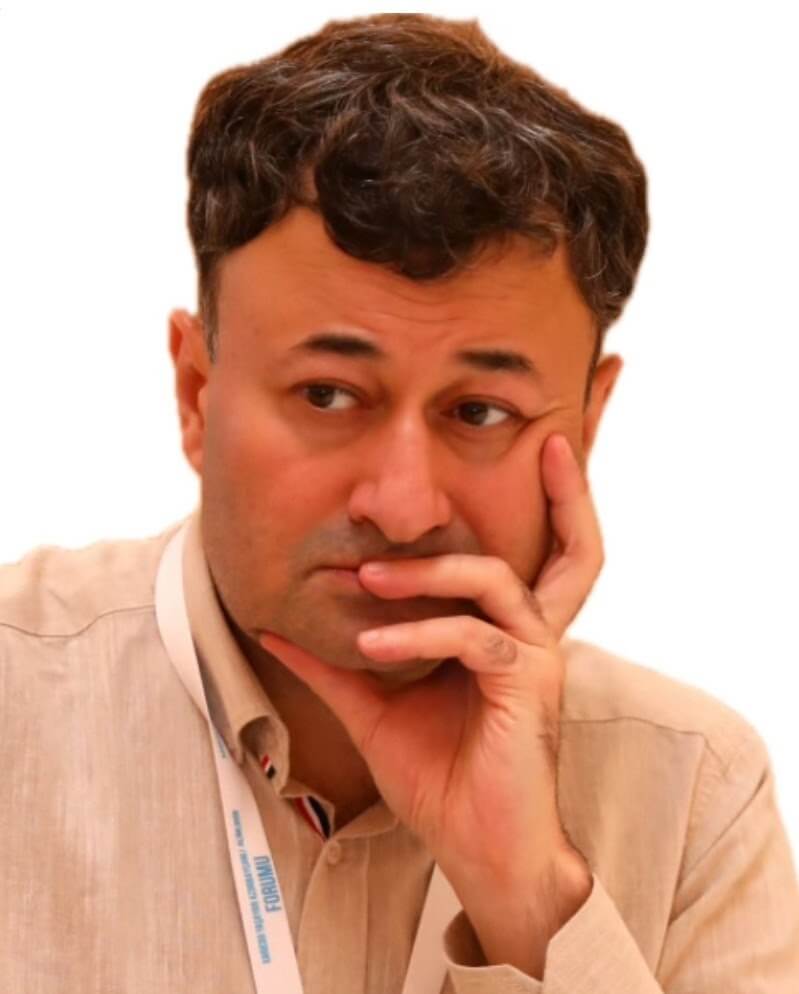
ROVSHAN IBRAHIMOV
Rovshan Ibrahimov is a Professor at the Hankuk University of Foreign Studies (South Korea), College of Oriental Studies. He has been working at this University since March 2015. Between 1999-2014 Dr. Ibrahimov has worked at Qafqaz University (Azerbaijan) where had positions of Head of Department of International Relations (2003-2013), Head of Department of European Studies (2008-2010), Vice-rector on External Affairs (2011). In the period between 2011-2014, Head of Foreign Policy Analysis Department the Center for Strategic Researches under the President of Azerbaijan Republic. Dr. Ibrahimov received his PhD from Ankara University (Turkey).
He is author of a book; EU External Policy Towards the South Caucasus: How Far is it From Realizations? (Baku: SAM, 2013); Small State Foreign Policy in Contemporary World: The South Caucasus States (Azerbaijan, Georgia, and Armenia) and Beyond (Lit Verlag, 2024) editor and author of book: Azerbaijan`s Energy History and Policy: From Past Till Our Days, Energy and Azerbaijan: History, Strategy and Cooperation, ed. Rovshan Ibrahimov, (Baku: SAM, 2013), co-author of Dictionary of Energy Terms, (Bakı: Qafqaz Universiteti Yayınları, 2014) and author of more than two hundred articles and comments in various academic journals and books. Scope of research interests: Energy policy, Energy Security, European Union, Foreign and Energy Policies of the former Soviet Union states, Turkish Foreign Policy.
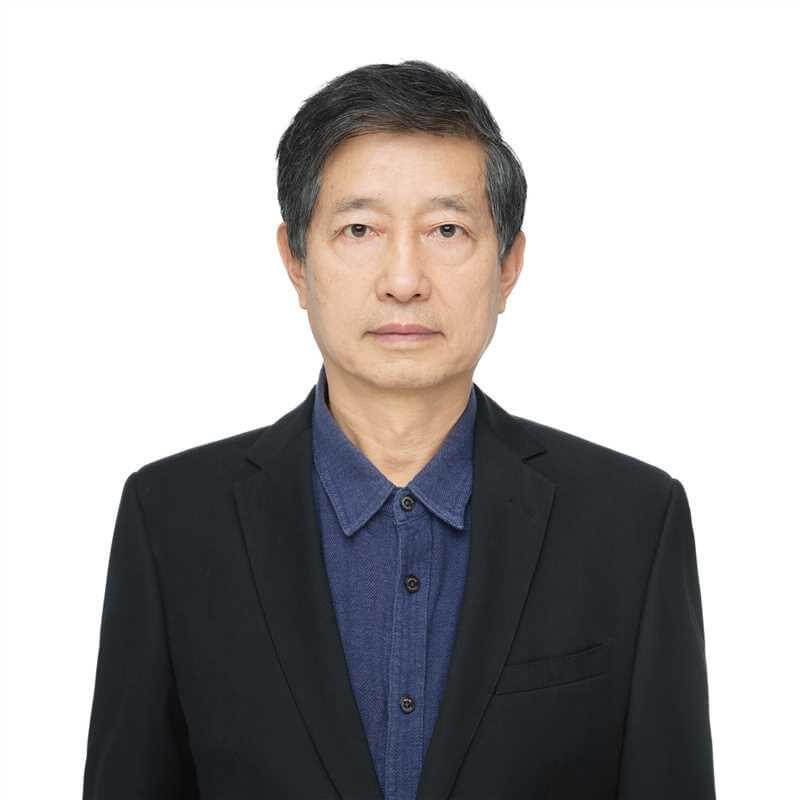
PAUL WANG
Paul Wang is a Professor of public law at Shiliang School of Law, Changzhou University (China) and Associate Research fellow at the Center for Global Security & Governance, University of Aberdeen (UK). His research areas include international society, global governance, competition between major powers, and the theory of geopolitics.
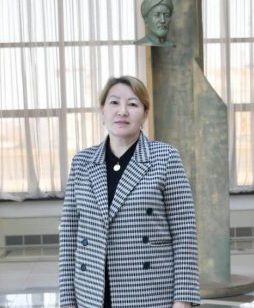
KARLYGA MYSSAYEVA
Karlyga Myssayeva is the former vice dean and associate professor in the Faculty of Journalism at al-Farabi Kazakh National University. Her research interests are international media, social media, global journalism, data journalism, and journalism education in Kazakhstan and the world. She has published two monographs, two textbooks and more than 30 scientific articles. She was a Fulbright Scholar at Ohio University, a Visiting Scholar at George Washington University, Research Scholar at Oklahoma State University, and a post-doctorate program (IFEAC) scholar at Strasbourg University in France. Karlyga Myssayeva recently presented her research paper about How state information policy in an Asian context de-professionalizes journalism and threatens independent media and is studying business models of media in Kazakhstan. She is an editorial board member of Bulletin of Kazakh National University, Journalism Series and reviewer for several journals, including Journal of Europe-Asia Studies. She teaches digital media and society, and Mass Communication theory.

HANS-JOACHIM SCHRAMM
Since 2012, Professor of Business Law at the University of Applied Sciences in Wismar, Germany, and a dedicated staff member at the Ostinstitut. From 2000 to 2010, he served as a research assistant at the University of Bremen in the Chair of Prof. Rolf Knieper, as well as for the GIZ. Dr. Schramm has extensive experience working as a short-term legal expert in business law across former Soviet republics. Between 1997 and 1999, he worked at the Ukraine-European Policy and Legal Advice Centre (UEPLAC) in Kyiv. His area of expertise focuses on comparative civil and commercial law in transitional economies. Dr. Schramm has authored numerous publications, including the ones focused on Kazakh law.
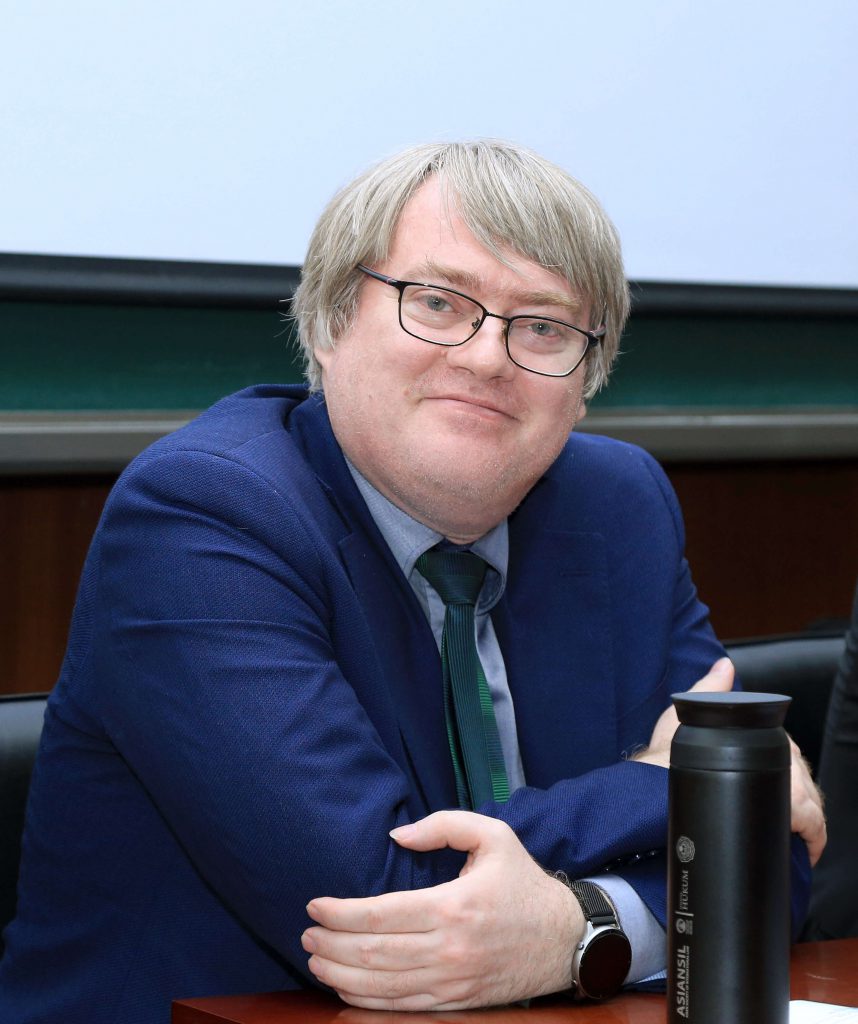
SERGEY SAYAPIN
Sergey Sayapin currently serves as Professor and Research Director at KIMEP University’s School of Law (Almaty, Kazakhstan). He studied law in Uzbekistan, the United Kingdom, and Germany. In 2000-2014, he worked as a Legal Adviser at the ICRC Regional Delegation (Tashkent, Uzbekistan). He is a member of the Executive Council of the Asian Association of International Law (2021-2025), and sub-editor for Central Asia of the Encyclopedia of Public International Law in Asia (Brill).
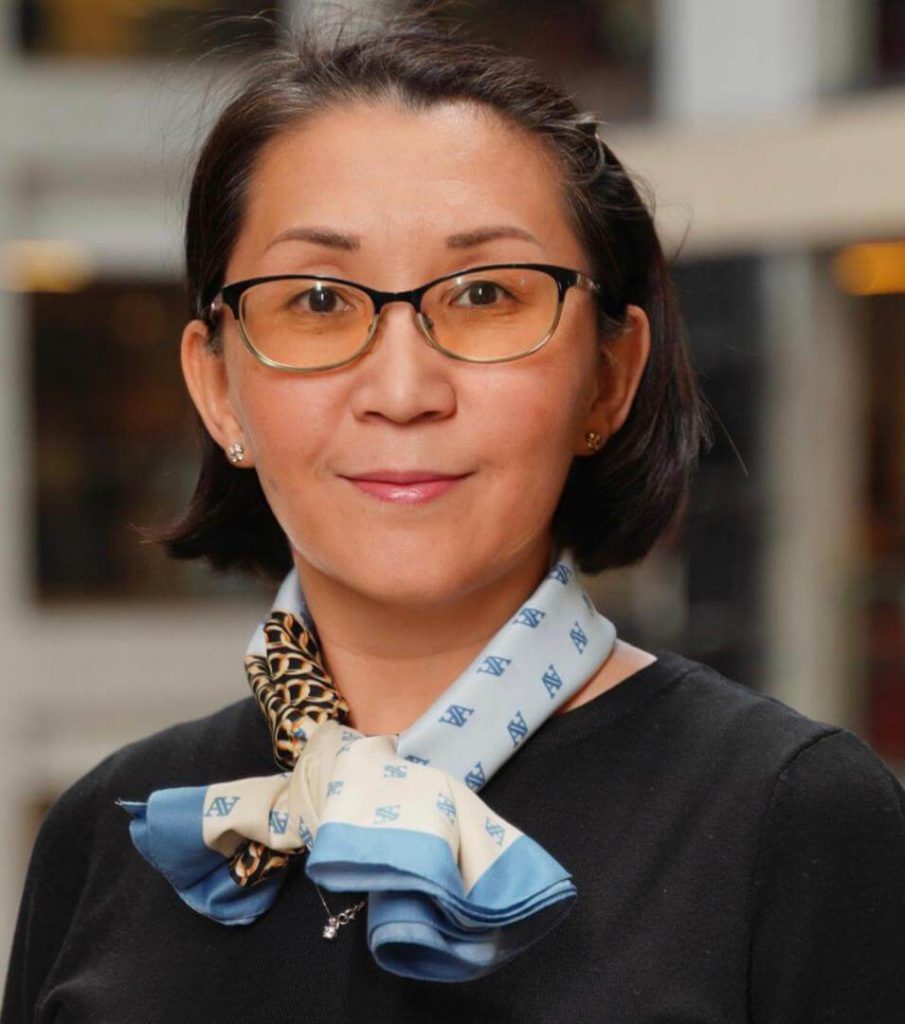
CHOLPON TURDALIYEVA
Cholpon Turdaliyeva is a professor at the American University of Central Asia. She earned her PhD from Humboldt University (Germany, 2022) and completed her postdoctoral research at the Institute of History of the National Academy of Sciences of Kyrgyzstan (2010).
Dr. Turdalieva was a research fellow at Bard College (Germany, 2023-2024). Previously, she was a visiting scholar at Columbia University’s Harriman Institute (2016, USA) and a Fulbright scholar at the University of Washington (2004-2005, USA). She served on the ESCAS advisory board (2014-2018) and was president of the Fulbright Association of Kyrgyzstan (2019-2023). She is a member of the CESS awards committee (since 2023), IOHA (since 2019), and the Association of Historians of Kyrgyzstan (since 2013).
She is the founder and former director of the “Center for Museum Initiatives” NGO, leading cultural heritage projects funded by AFCP, the Soros Foundation, UNESCO, and others. Major projects included restoring the Burana Tower (2021-2023) and the Shah-Fazl Mausoleum (2000-2001).

RUSTAM ATADJANOV
Rustam Atadjanov, LLB, LLM, Dr. iur., PhD, is Associate Professor and Associate Dean at KIMEP University School of Law, Almaty, Kazakhstan. He is one of the leading international law scholars in the Central Asian region. His teaching and research interests include a wide variety of public law and international law-related topics such as international criminal law, crimes against humanity, common theory of law, international humanitarian law, diplomatic law and international human rights law. Professor Atadjanov serves as a member of the Editorial Boards in a number of academic journals in Europe and Asia including the Journal of International Peacekeeping and Journal of Humanity, Peace and Justice. He is a member of several academic and professional entities at both international and national levels such as the Asian, European and American Societies of International Law, and the Uzbek Association of International Law. Since 2021, he has been a member of the World Commission on Environmental Law (within the IUCN system). Professor Atadjanov has been an actively publishing author in some prestigious law and law-related scholarly journals such as the Asian Journal of International Law, Asian Journal of Comparative Law, Asian Yearbook of International Law, Journal of International Criminal Justice, Journal of International Peacekeeping, and the Criminal Law Forum. Further, he is a co-editor of a major two-volume book titled “International Conflict and Security Law. A Research Handbook” published by T.M.C. Asser Press and Springer in 2022. Professor Atadjanov’s new textbook on common theory of law for the post-Soviet states is expected to be published in 2025, while the second edition of his major monograph of 2019 called “Humanness as a Protected Legal Interest of Crimes against Humanity. Conceptual and Normative Aspects” will be published in 2026 (both by T.M.C. Asser Press and Springer).
TRACKS
– Law
– International Law
– International Relations
– Media Studies
– Gender Studies
Will cover the extent of how recent developments in Eurasia led to the integration and disintegration of regional cooperation and whether new avenues of international and regional cooperation will emerge as a consequence. This track will discuss the changing role of international actors including China, EU, Russia, India, and the US in Central Asia with a focus on interconnectivity and issues related to regional cooperation.
Will discuss the pivotal role of private law, international law, and IT law in domestic affairs, and regional and international matters of Eurasia. This track will focus on the recent developments and challenges of private, international, and IT law. This track will touch upon how the countries are responding to challenges in the field of domestic and international law including human rights, environmental law and IT law.
Will discuss how data-driven and specialized media education shape the intersectionality of gender, migration, human rights, and democratization of the countries. This track will focus on challenges and emerging opportunities for data-driven media in Eurasian countries including misinformation and disinformation. Specifically, this track will discuss the need for specialized media education in Kazakhstani higher education institutions.
PROPOSAL SUBMISSION GUIDELINES
The conference welcomes proposals for individual papers, full panels, roundtables, and book discussions offering novel insights into significant transformations in the Central Asian region. To participate in the conference, please complete the form below. For panel and roundtable proposals, upload a Word file that includes a brief description of the theme, objectives, and proposed speakers. For individual paper proposals, upload a Word file containing an abstract (250–300 words) that outlines the research objectives, methodology, and key findings.
IMPORTANT DATES
Deadline for registration and submission of proposals
Acceptance notification
Preliminary conference program
Final conference program
Conference sessions
partners
Venue
SDU University
LANGUAGES
English, Kazakh, Russian




 1 ұпай:
1 ұпай:




